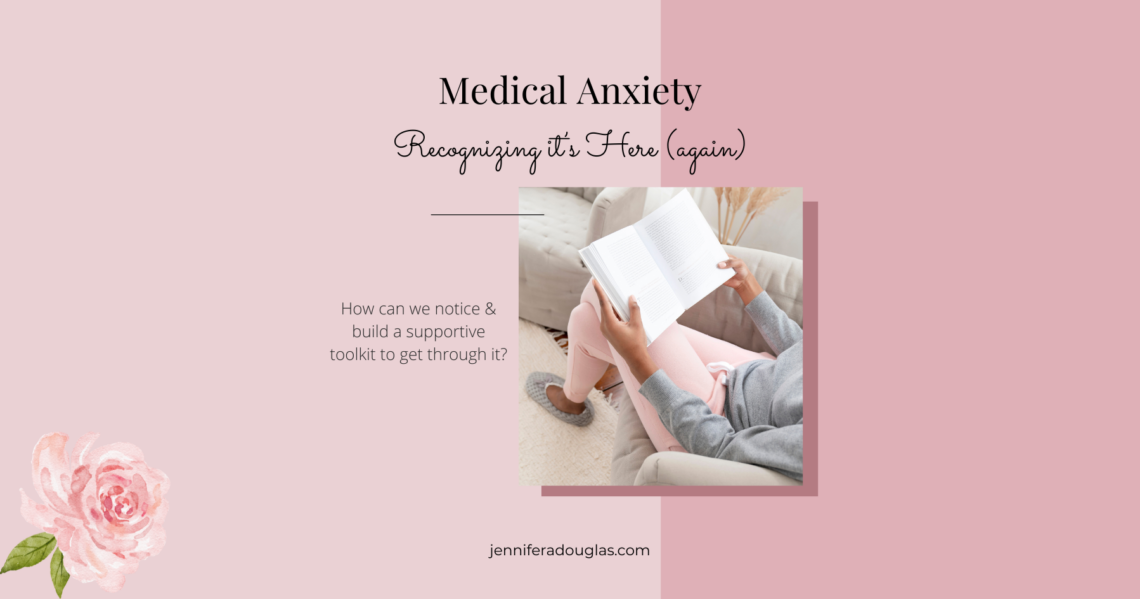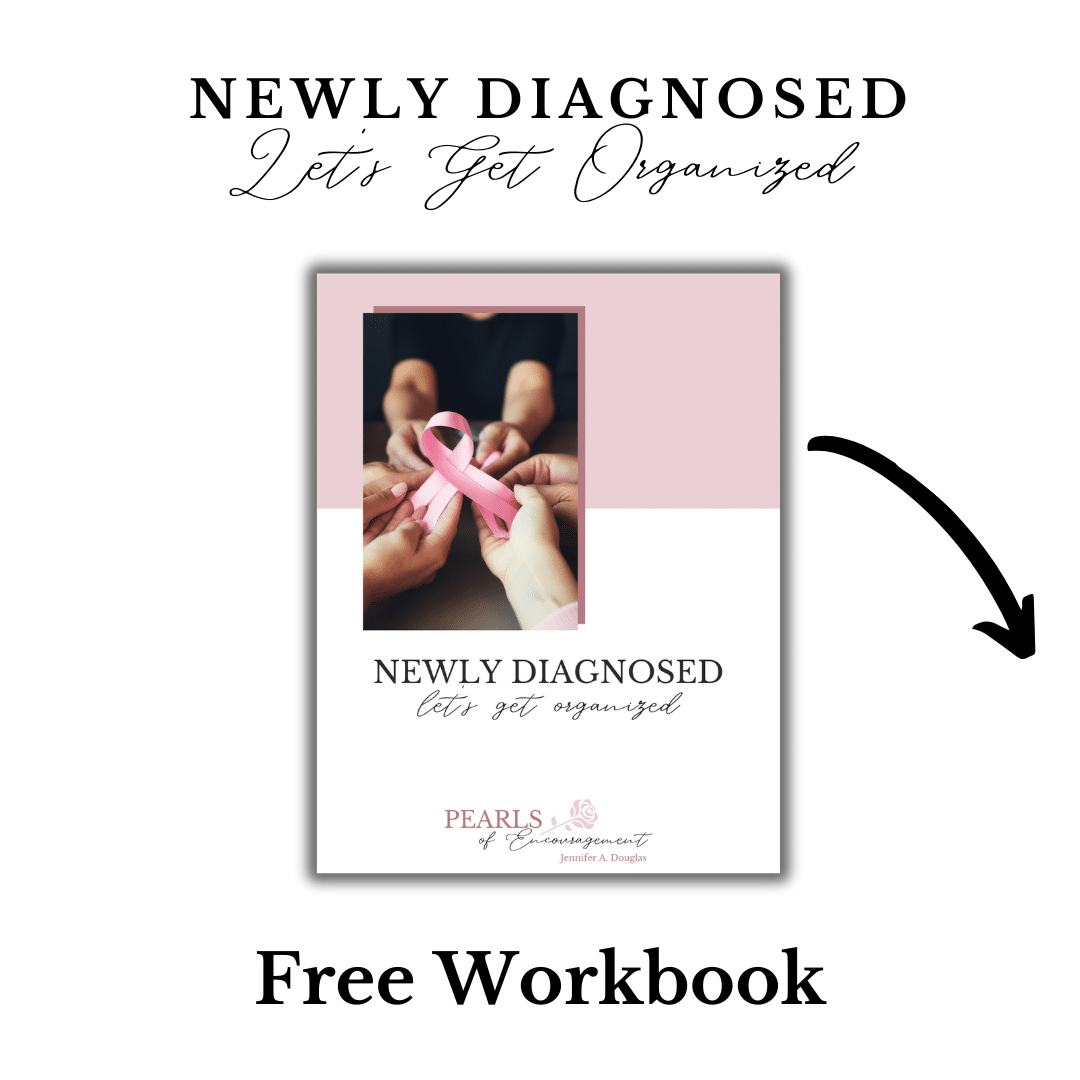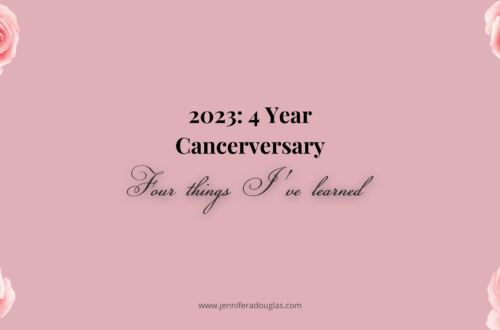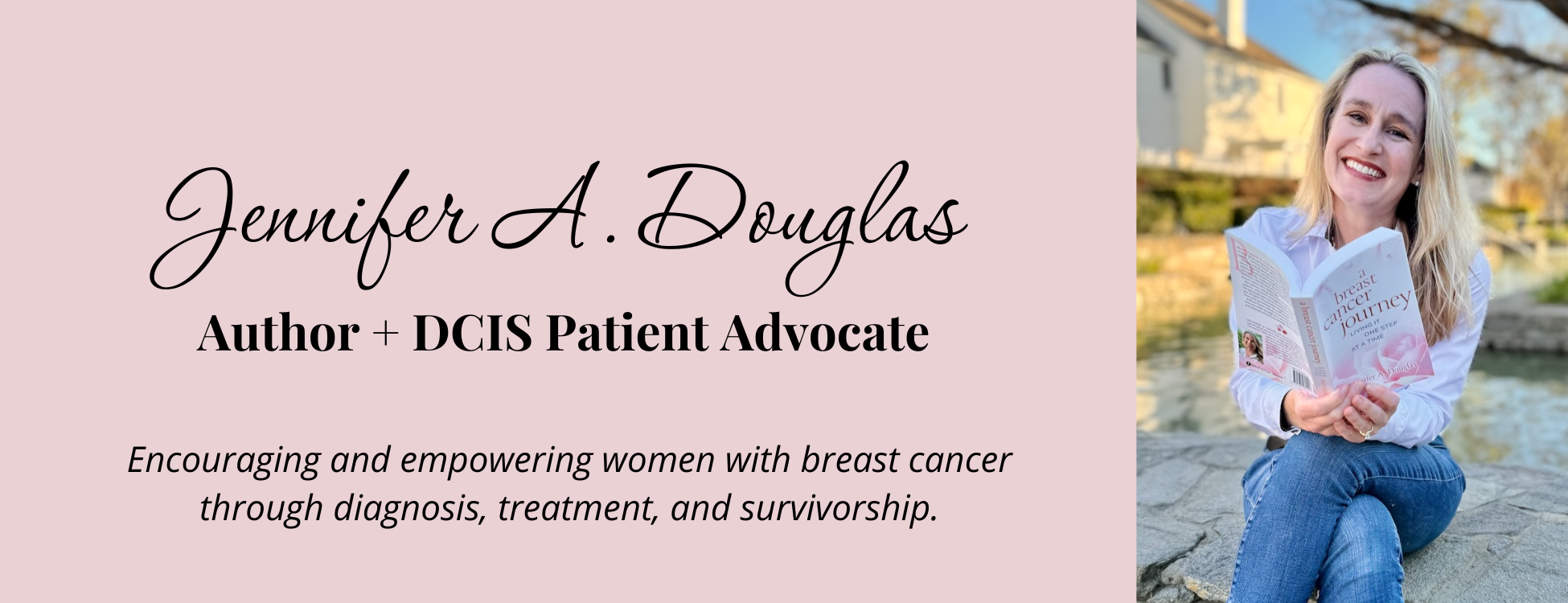
Medical Anxiety
Even years after treatment, medical anxiety still catches me off guard. I’ve learned it’s not about if it shows up—but when.
On this particular morning, it showed up right after I sent a message to the dermatologist.
I had just finished my coffee and reading and realized I wanted to contact the dermatologist about my husband’s results, which had shown up in MyChart the previous week. We needed to coordinate the follow-up visits, and I had a few questions for the doctor. After I finished typing up the message and hit send, something felt off. It might have been the message I sent, or maybe it was the medical bills that were also sitting inside the chart, waiting for insurance approval.
Not only does having a history of cancer cost us our mental and emotional energy, but it can also quite literally cost us a lot financially. Cancer treatment and diagnostics are expensive, and seeing those pre-insurance costs can be shocking.
I thought my medical anxiety would go away after I finished treatment. But, surprisingly, I’ve discovered that it has gotten worse over the years. The results keep coming, and every time I’m waiting or needing to plan for more procedures, my anxiety spikes. So rather than hoping it will go away, I’ve assembled some tools that help me manage it whenever it shows up—like it did this morning, right after I sent that message.
Results Management
Waiting for results, and then taking action on them when they show up, seems to be a key part of being a patient. They can pop up and disrupt us at any time.
I remember when I first got the MyChart app on my phone. It felt great at first because I had immediate access to the results.
And then I was waiting on results that might mean I had cancer. Cue the spike in anxiety. When would the notification show up? Would I be in the middle of dinner, out with my kids, or in the middle of work? There was never a good time for that kind of notification to be pushed to me.
So I turned them off.
Now, my notifications go to email instead. That works better for me. Often, I’m already in a more focused or prepared headspace when I check my email, so I’m better equipped to deal with the information.
Dave still has the app notifications turned on, which makes for an interesting dynamic. Sometimes, he gets the results before I do since I can access his chart. We’ve had a few instances when a walk to Starbucks is suddenly interrupted by test results that derail our conversation. I am not a fan.
But we all need to manage our approach to results differently. Do we want the notifications or not?
Personally, I don’t want to be interrupted by them, so my results go to email.
Every doctor seems to approach results differently, too. My breast surgeon always goes over results with me in person. Dermatologists, however, tend to review them over the phone.
However they arrive, waiting for results is an anxious process—and it can absolutely spike our medical anxiety.
How Anxiety Shows Up For Me
For me, the first step is simply noticing that it’s there—but I know it can look different for everyone.
I even wrote a blog post a while back on how to overcome your fear of medical screenings—but now, I think I’m more afraid than I was then. I’ve been through more. I know what the results can mean. I know the screenings are important, and I’m going to keep doing them, but I also know I carry a lot of anxiety into those appointments. I don’t think that part is going to change.
When I’m anxious, I tend to:
- Let my mind race
- Ruminate on the “what ifs”
- Struggle to focus on anything else
- Feel restless and agitated
- Respond more sharply to the people I love
- Notice a tingling feeling in my body
- Experience a racing heart
- Feel tightness in my chest
- Scroll my phone even though it doesn’t actually help
- See my blood pressure rise at appointments
These are a few of the ways medical anxiety shows up in my life. You might notice different symptoms or experience anxiety in other situations. For me, breast imaging appointments are the most anxiety-inducing because of my history of breast cancer. On the other hand, dermatology visits aren’t as hard for me—but they’re incredibly difficult for Dave, given everything he’s been through. We’ve learned that our responses can look very different, even when we’re both dealing with uncertainty and follow-up care.

Newly Diagnosed: Free Workbook and On-Demand Workshop
If you’ve received results and are now facing a cancer diagnosis, you might be feeling overwhelmed—I know I was. That’s exactly why I created this resource.
Grab your free copy today and start feeling a little more organized and supported as you walk through your diagnosis.
Building Our Toolkit
How do we cope with medical anxiety—especially when it keeps showing up?
This morning, I was on a walk listening to a podcast and realized it wasn’t helping. My mind was spinning. I turned around, walked toward Peet’s for coffee, and started recording my thoughts. I needed a way to process everything that had come up.
The anxiety wasn’t even about me this time. It was about Dave.
It reminded me that medical anxiety doesn’t just show up in our own appointments. It can surface when we’re supporting our partners, our parents, our children—anyone we love who’s walking through a medical situation. When we’re involved in their care, it becomes part of our emotional reality, too.
Walking helps me. So does writing. That’s what I did when I got home—I opened this draft and started organizing my thoughts. Getting them out of my head and onto paper helps me move through the spin cycle of overthinking.
I know exactly what sparked my anxiety this morning. I had just sent a message to Dave’s dermatologist, including a photo and a few questions about whether we could address the margins at his next appointment. With our travel schedule, it’s difficult to plan wound care when he’s away, and the location of this particular wound makes it hard for him to manage on his own. It requires balancing our schedules to ensure the best possible outcomes.
And this gets back to medical anxiety. Getting suspicious things removed—or biopsied—isn’t fun. No one enjoys hearing they need something removed, especially when they’re awake for it.
And while we may understand the procedure, the more of them we go through, the more we carry with us. We collect anxieties, fears, and difficult memories from previous experiences. I know I have. I could write an entire post about what it’s like to go through a biopsy—but if you called me tomorrow and told me I needed one, I would still be anxious. I’d likely call my surgeon and ask for a prescription to help me through it.
What’s In My Toolkit
I’ve learned that my medical anxiety doesn’t vanish completely, but I can build a toolkit to help me navigate it. Here are a few of the tools I reach for when I need support:
- Writing. Getting my thoughts out of my head and onto the page helps me process and reset.
- Walking. Especially when the sun is out. A walk clears my head and lets me breathe again.
- Talking about it. Sometimes with Dave, sometimes with a friend, sometimes with a therapist.
- Creating a peaceful environment. I’ll light a candle, turn on music, or set up a cozy corner at home—whatever brings comfort.
- Noise-canceling headphones. I’ve brought them to waiting rooms, so I’m not hearing every other anxious conversation around me.
- Morning appointments. I schedule my imaging appointments early in the day, so I’m not spending hours spinning in anxiety.
- Assembling a team I trust. This is huge. When my OB/GYN found a breast lump doing an exam in December, I immediately asked her to contact my breast surgeon. Within a day, he reached out to schedule an appointment. I trust him, and that trust makes a difference. (It was nothing— yay)
That isn’t always the case. For much of last year, we were under the care of a dermatologist who missed the cancer and never biopsied it. Finally, we got to a new team and a proper diagnosis. But the anxiety remains.
That’s why having a toolkit matters.
If medical anxiety shows up for you, I hope you’ll take some time to notice how it feels in your body and what tends to activate it. And more importantly, I hope you’ll think about what actually helps you through it. It may be different for everyone, but knowing what to reach for when the anxiety hits is a powerful step toward feeling grounded—especially in a life that includes ongoing scans, follow-ups, and uncertainty.
A Final Thought On Caring For Yourself
As I finish writing this, I’m still feeling the weight of the anxiety from earlier this morning. I know this feeling won’t last forever—but right now, it’s uncomfortable. And if you’re sitting in that same space, feeling unsettled or overwhelmed by medical anxiety, I want you to know: you’re not alone.
Part of the reason I spend so much time in support groups—and even created a membership community—is because life after cancer often brings a new set of realities. We’ve walked through bad news before. We know what that feels like. And we no longer live under the illusion that we’re invincible.
Whether you’re recovering from treatment or living with the possibility of recurrence, that sense of uncertainty can weigh on us. And sometimes, just waiting for a result or planning a follow-up is enough to stir it all back up.
So, if that’s where you are today, I encourage you to take a moment and think about your own toolkit. What are the things, big or small, that help you restore a sense of peace?
Maybe it’s going for a walk, journaling, calling a friend, or talking with a therapist. Perhaps it’s timing your appointments in a way that feels more manageable. Maybe it’s simply acknowledging, “This is hard,” and offering yourself a little extra grace in the middle of it.
I’m working on this, too. If I keep feeling this anxious, I’ll likely reach out to my therapist and talk through it, because I don’t want to stay stuck in this mental space longer than I need to.
Whatever your version of medical anxiety looks like, building a toolkit to support yourself can make a meaningful difference. It may not eliminate the discomfort, but it can help you move through the anxious period and find moments of calm along the way.
You deserve that care—even in the waiting.
Jennifer Douglas
Jennifer Douglas is an author, patient advocate, and DCIS breast cancer survivor. After navigating her own breast cancer journey in 2019, she began writing and encouraging others who were newly diagnosed. Her resources include her book, "A Breast Cancer Journey: Living It One Step at a Time," and her online support course, "Encourage: Breast Cancer and Beyond." Jennifer also actively supports patients through her online presence and direct involvement in communities and support groups, offering guidance and encouragement every step of the way.


You May Also Like

Breast Imaging Focus: What is a Screening Mammogram?
February 4, 2022
How to Create a Comfortable, Cozy, and Chic Surgery Recovery Wardrobe
October 28, 2022
